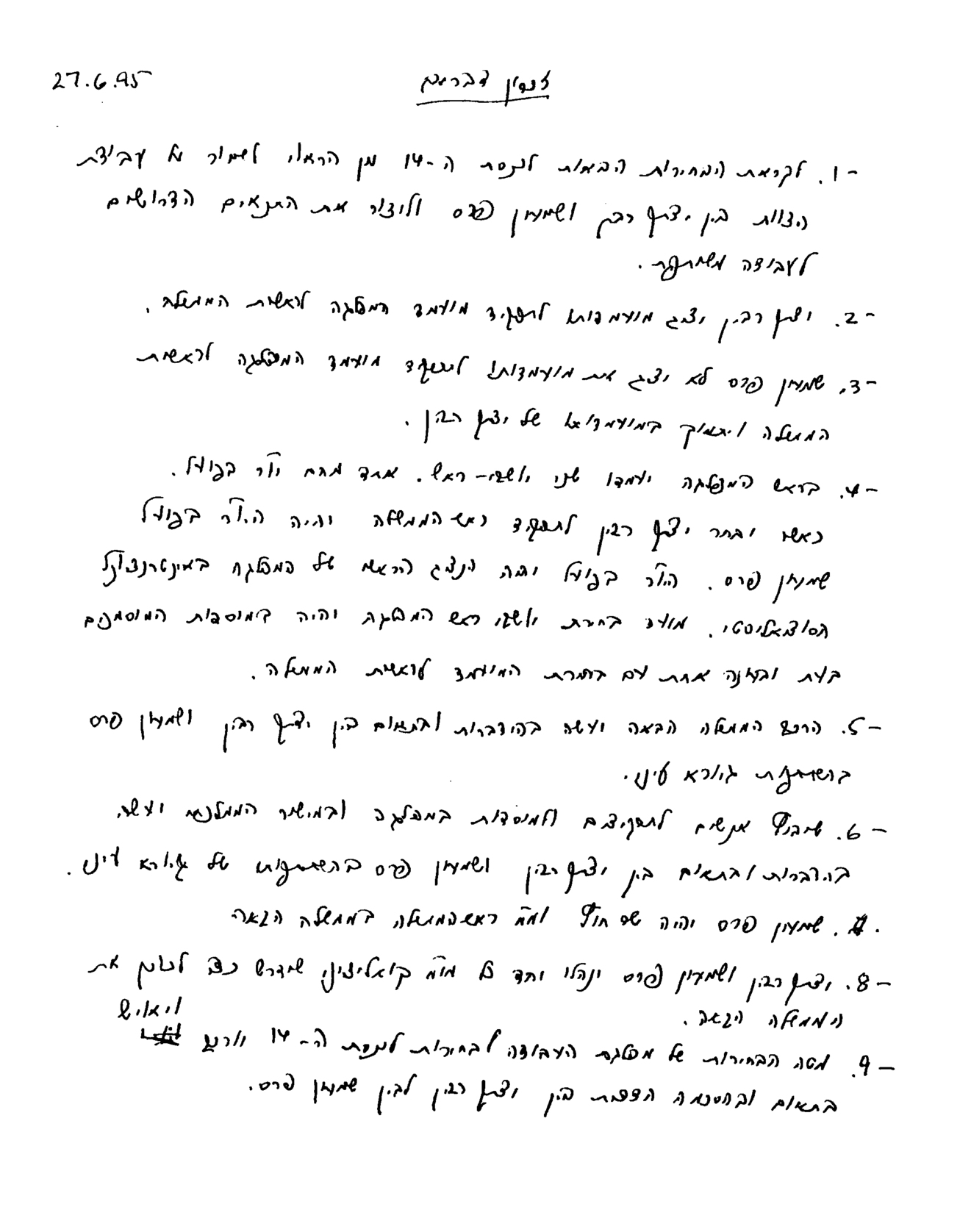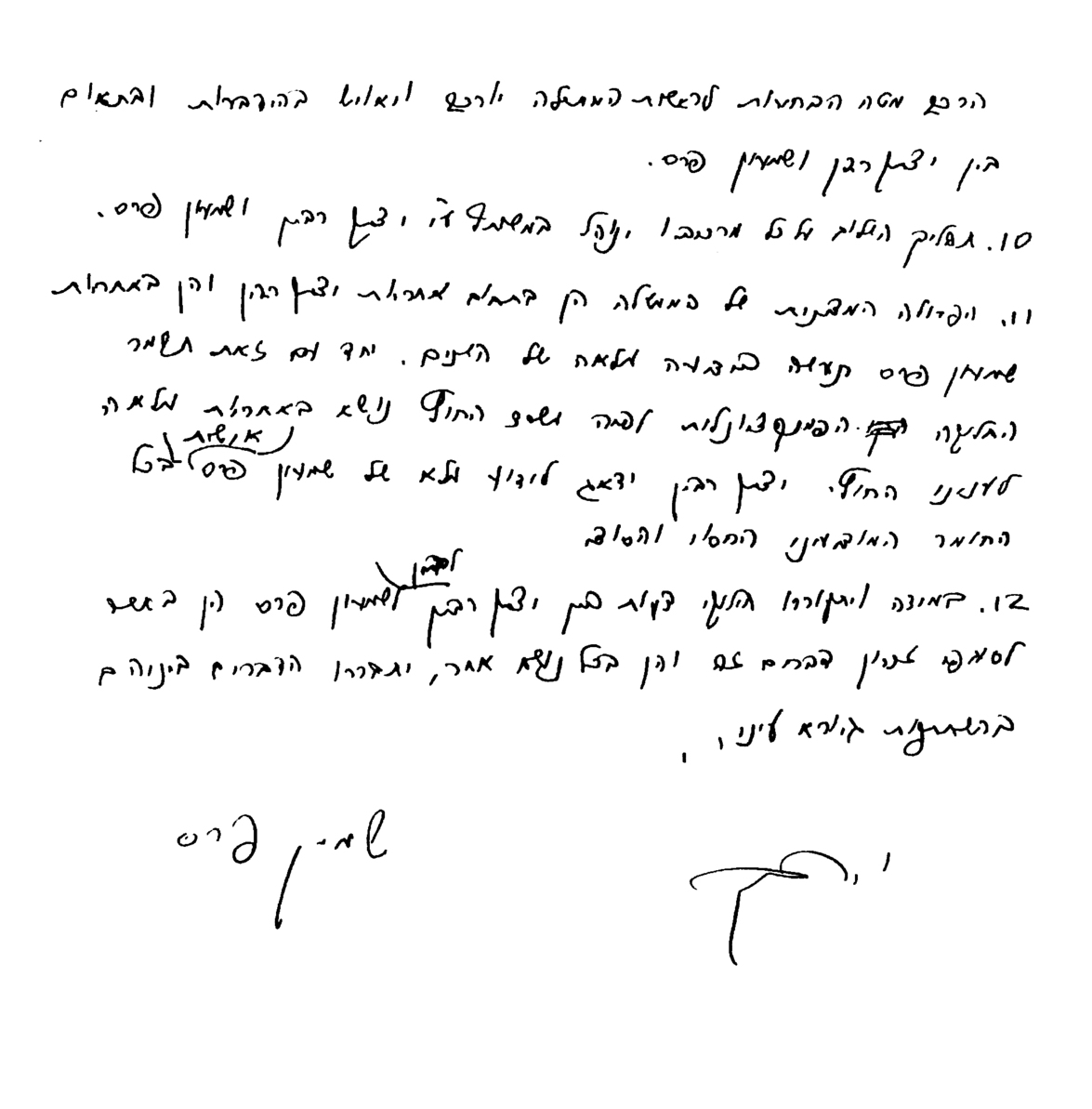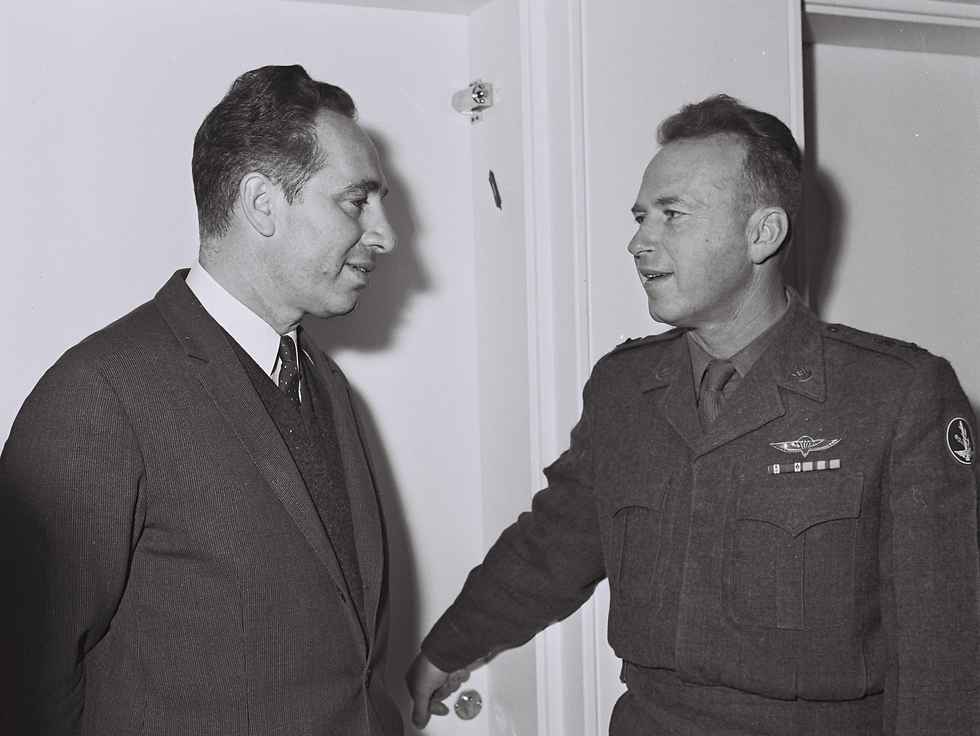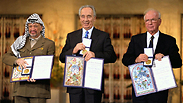
Peres and Rabin's reconciliation letter
Yedioth Ahronoth publishes the story of the 'reconciliation document' agreed upon and signed between Yitzhak Rabin and Shimon Peres just before the former's assassination; the two quarreled constantly about power sharing arrangements and policy before brokering agreement via Giora Eini.
Yedioth Ahronoth publishes—for the first time ever—the so-called "reconciliation paper," signed between Yitzhak Rabin and Shimon Peres in 1995, three months before Rabin would be assassinated.
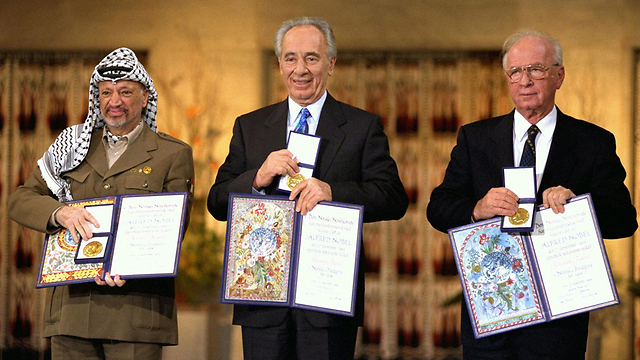
The document details a working arrangement between the two in the event that Rabin got elected to an addition term as prime minister in the elections that were due to be held in 1996. According to the agreement, Peres would not run against Rabin in return for being made foreign minister. Rabin, for his part, agreed to coordinate all moves with the Palestinians and countries in the region with Peres, as well as provide access to any secret documents he was privy to.
The one who helped make the deal possible was Giora Eini. The son of a former Mapai official and an attorney, Eini was a confidant of both Rabin and Peres and acted as mediator between the two.
Eini's influence on the two first appeared during one of the ugliest spats between Rabin and Peres, on September 12th, 1993, at the ceremony marking the signing of the Oslo Accords.
The ceremony was being planned at the White House by then-US President Bill Clinton. Rabin had originally planned not to take part. "Let them remember that Peres was there with Arafat when everything collapsed," he said. Peres—who was holding secret negotiations with the PLO at the time—apparently agreed with the notion that Rabin should stay home. "I deserve it," he apparently said.
However, in the end, Rabin was convinced by the Americans to attend and participate in the ceremony. When Peres heard the news that Rabin was attending, he apparently picked up the phone and called Eini, saying, "This man is ruining my life and hasn't left me alone for 16 years."
The document was written in Rabin's handwriting, who also refused to give Peres a copy of the letter, suspecting that he would leak the document and "distort its meaning." The existence of the document is mentioned in the recently published biography "Yitzhak Rabin—Soldier, statesman, leader" written by Professor Itamar Rabinovich.
However, even the signing of the document proved to be a squabble between the two.
On November 4, 1995, months after the document was prepared and signed, Eini reached Rabin's house in Tel Aviv only to complain that Peres informed him that the agreement was null and void as a result of Rabin's refusal to transfer Nativ, which coordinated the activities of the Jewish communities in the former Soviet Union, to Peres's responsibility at the Foreign Ministry.
Eini proposed as a compromise that the overall responsibility for Nativ would remain under the authority of the prime minister, with the practical responsibility would be handed over to Peres and the Foreign Ministry. Rabin begrudgingly agreed.
At the fateful peace rally, in what would soon become Rabin Square under tragic circumstances, Eini approached Peres and tried to sell him on the compromise he had agreed with Rabin.
Peres initially reacted with rage, saying, "What did I do to him that he hates me so much?" He hissed. "I will not take any more insults on his part." In the end, however, Eini persuaded him to agree.
Following the rally and the singing of "Shir LaShalom," (Hebrew for "the song for peace"), Eini informed Rabin that Peres had agreed to the compromise, only for Rabin to respond, "Why were you so quick to end it? You could have waited a week and let him sweat," said Rabin before walking to his car, where Yigal Amir was waiting for him.










